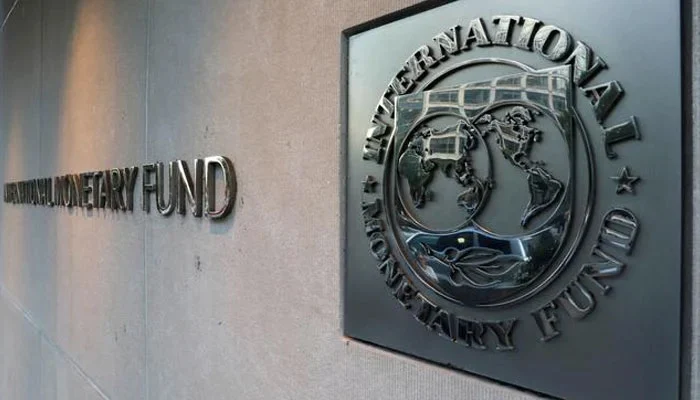- Pakistan-IMF talks are underway for ninth review.
- Ester Perez says discussions have enabled a revision to macroeconomic outlook post floods.
- Govt hopes staff-level agreement will be finalised soon.
ISLAMABAD: The International Monetary Fund’s (IMF) Country Representative Ester Perez has termed the discussions with the Pakistani government on the ninth review “productive”.
“Discussions have enabled a revision to the macroeconomic outlook post floods as well as an in-depth evaluation of fiscal, monetary, exchange rate, and energy policies adopted since the completion of the combined seventh and eighth reviews,” said Perez.
The IMF Pakistan chief said that the global lender is looking forward to continuing dialogue over policies that adequately address the humanitarian and rehabilitation needs from the floods while also preserving fiscal and external sustainability given available financing.
On the other hand, a top Pakistani government official told The News that the talks have been continuing positively with IMF and both sides would be able to strike a staff-level agreement soon.
Pakistan seeking budget deficit increase
On the other hand, sources told the publication that Pakistan has requested the lender to allow an adjuster of Rs320 billion in the budget deficit for the current fiscal year 2022-23 as the said amount was the expenditures on flood rescue and relief.
To boost its tax collection target, the government is considering imposing a flood levy in the ongoing fiscal year and different proposals are under consideration for finalising its exact modalities.
Although the political leadership has agreed in principle to take additional taxation measures but they want to adopt them in such a way there is no extra burden on the common man amid higher inflation and low growth trajectory.
“We are considering imposing flood levy on those in higher income brackets who are earning lofty profits in recent years. We have not yet firmed up modalities but it’s actively under consideration at the moment within the higher functionaries of the government,” a government official confirmed to The News.
The government has informed the IMF of the flood expenditures including BISP and those utilised on relief and rehabilitation during the current fiscal year including the Public Sector Development Programme (PSDP) and Annual Development Plans (ADPs) of the provincial governments. Now the adjuster will be used to hike the budget deficit target envisaged at 4.9% of GDP on eve of the budget for 2022-23.
Differences persist
Pakistan and the global lender continued ongoing talks virtually but differences still persisted over tax collection targets, and non-starter energy reforms including hiking of gas tariff, rising circular debt, and expenditure overrun, making consensus harder to strike on a staff-level agreement for completion of the 9th review under $7 billion Extended Fund Facility (EFF).
The IMF had asked Pakistan for hiking the gas tariff because the government kept the prices unchanged which resulted in an increase in the circular debt of the gas sector.
Although the government made plans for improving the gas sector no progress was witnessed in the power sector. The monster of circular debt in the power sector went up to Rs2.4 trillion and all targets agreed with the IMF for reducing it on a monthly and quarterly basis could not be achieved. The subsidy on tube wells alone would cause an increase of Rs200 billion in the accumulated Circular Debt in the ongoing financial year.
The IMF also raised objections over Kissan Package as well as the government’s decision to grant power and gas tariff reduction for five export-oriented sectors and the agriculture sector.
The decision regarding deferred payment of electricity bills continues to be another bone of contentions among the Ministry of Finance and Ministry of Power if the move was meant for subsidy.
The Finance Ministry argues that it was deferred payment with the understanding that the payment would be recovered during the winter. But there is a difference of opinion on interpretation between the two ministries.
The IMF has also assessed that the FBR would not be able to collect its annual envisaged tax collection target of Rs7.47 trillion so it asked for a revised projection in the wake of import compression and slowing down of the economy.
The Fund staff also inquired when the nominal growth jumped to in the range of 25% to 27% and why it did not reflect in FBR’s collection. The IMF has projected that even if the FBR achieved its annual target of Rs7.47 trillion, the tax-to-GDP ratio would decline in the current fiscal year.
But the FBR argued before the IMF that its collection was on track and they would be able to achieve the desired target.
However, the revenue collection might be staggered in the wake of litigations whereby the stuck-up revenues to the tune of Rs250 billion might be materialised in coming months because currently, the courts granted stay orders.
The FBR has sent out written requests to the chief justice of Pakistan for early disposal of the pending cases before the courts where billions of rupees were involved.

 Entertainment2 days ago
Entertainment2 days ago
 Latest News1 day ago
Latest News1 day ago
 Latest News1 day ago
Latest News1 day ago
 Latest News1 day ago
Latest News1 day ago
 Latest News1 day ago
Latest News1 day ago
 Entertainment2 days ago
Entertainment2 days ago
 Latest News1 day ago
Latest News1 day ago
 Latest News1 day ago
Latest News1 day ago
























